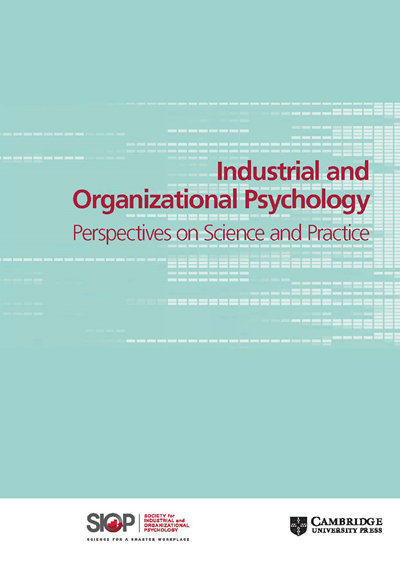培养联系的潜力:对多元文化组织的洞察
IF 4.3
3区 心理学
Q1 PSYCHOLOGY, APPLIED
Industrial and Organizational Psychology-Perspectives on Science and Practice
Pub Date : 2023-05-09
DOI:10.1017/iop.2023.23
引用次数: 5
摘要
组织中的多样性是一个反复出现且日益重要的现实。多样性管理文献根据对多样性的处理和管理描述了不同类型的组织,包括多元文化组织。然而,最近的研究表明,考虑多元文化组织在多样性管理中的附加价值。基于多元文化意识形态,多元文化组织认为价值观、传统和规范内在地、动态地相互交织和混合,强调组织成员之间多样性的价值和“连通性”。在多样性管理文献中,本文从概念上描述了多元文化组织,并将其与多样性管理文献中的其他类型的组织进行了比较。它论证了将多元文化意识形态纳入当前多样性管理观点的潜在好处,以进一步推进我们对如何在组织中有效管理多样性的理解。此外,还提供了促进多元文化组织的实践启示和策略。本文章由计算机程序翻译,如有差异,请以英文原文为准。
The potential of fostering connections: Insights into polycultural organizations
Abstract Diversity in organizations is a recurring and increasing reality of vast importance. The diversity management literature describes different types of organizations based on their treatment and management of diversity, including plural and multicultural organizations. However, recent research suggests the added value of considering polycultural organizations in diversity management. Based on a polycultural ideology that sees values, traditions, and norms inherently and dynamically intertwined and mixed, polycultural organizations emphasize the value for and “connectedness” to diversity among organizational members. Contributing to the diversity management literature, this paper conceptually describes and compares polycultural organizations with other types of organizations in the diversity management literature. It argues the potential benefit of including a polycultural ideology to current perspectives in diversity management to further advance our understanding of how diversity can be effectively managed in organizations. Additionally, practice implications and strategies to foster polycultural organizations are provided.
求助全文
通过发布文献求助,成功后即可免费获取论文全文。
去求助
来源期刊

Industrial and Organizational Psychology-Perspectives on Science and Practice
PSYCHOLOGY, APPLIED-
CiteScore
7.70
自引率
10.10%
发文量
85
期刊介绍:
Industrial and Organizational Psychology-Perspectives on Science and Practice is a peer-reviewed academic journal published on behalf of the Society for Industrial and Organizational Psychology. The journal focuses on interactive exchanges on topics of importance to the science and practice of the field. It features articles that present new ideas or different takes on existing ideas, stimulating dialogue about important issues in the field. Additionally, the journal is indexed and abstracted in Clarivate Analytics SSCI, Clarivate Analytics Web of Science, European Reference Index for the Humanities and Social Sciences (ERIH PLUS), ProQuest, PsycINFO, and Scopus.
 求助内容:
求助内容: 应助结果提醒方式:
应助结果提醒方式:


